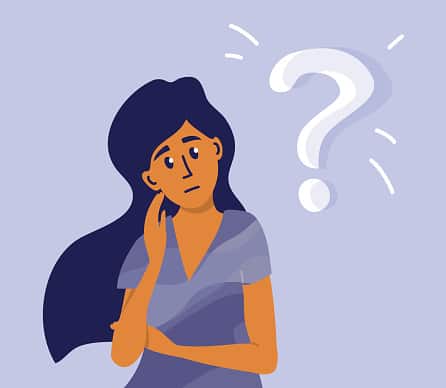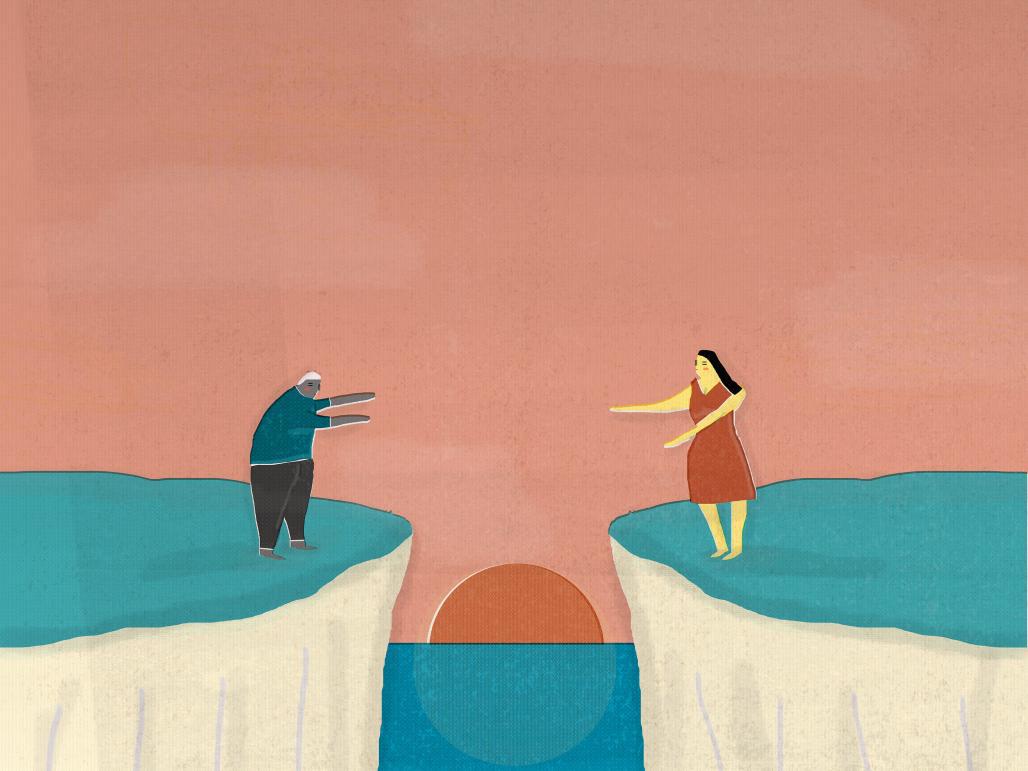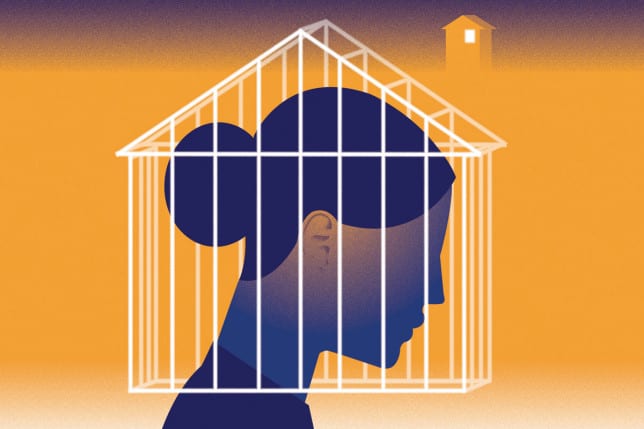In 2016, the number of people estimated to be suffering from mental health issues like depression and anxiety amounted to roughly 1.1 billion. Since then, numbers have likely continued to rise. Moreover, studies have also shown women especially on average are a) more likely to suffer from mental health issues, and b) less likely to talk about them. The taboo in Pakistan surrounding depression and anxiety disorders only serve to aggravate the individuals suffering even more. For the women who cannot seek out full time therapy, we’ve enlisted the help of a trained therapist. You sent us in your questions – here are the answers!

“I’m in a relationship with a person who is 14 years younger than me. It’s a long-distance relationship where we haven’t even met yet and even though he knows all the facts, I feel overwhelmed, ashamed and even guilty for being in a relationship with such a young person. My complex about this makes me want to not go any further in the relationship. I have tried to do end it a couple of times because of this, but somehow, we end up back together. We have differences but both of us, for the moment at least, get past them without affecting our relationship too much. I’m afraid how he will react to me in person. I’m afraid that even though he is fine now, he might lose it in the future. I’m afraid that I will never be able to flaunt this relationship as a normal thing as it is not. I want to muster the courage to end it while it still might not hurt as much as it will in future. I’m truly stigmatized to discuss it with even my close friends. Need help!”

Shahrukh’s Response:
Dear Anon,
I can really hear you struggling, it seems like there is an almost pendulum-like movement when it comes to the relationship: you want to end it, yet you don’t want to end it – and whether you decide to stay or leave is completely up to you. What we can do is go into the issue a little further and see how we can help you find a little more clarity and resolve. Let’s dive right in!
“My Significant Other Is Much Younger Than Me”: Does That Mean It Can’t Work?
When contemplating the level of commitment in a relationship, there are several things that are considered. One of the factors that is taken into account is age. Yet, if we really think about it, it’s not so much about the number of years as it is the implications of said age difference. So, let’s not focus on the numbers, but rather ask yourself some questions when you think about the relationship:
- How does he make me feel?
- Do I feel like our long-term plans align? (level of commitment, career goals, potential for marriage and potential for kids)
- Consider the stages of life we’re both in currently – do I feel like I’m able to connect with him in this respect?
- How do I feel around people in his life?
- What do we have in common? (While you don’t need to see eye-to-eye on everything, it is important to have some common ground, preferably things that are core and important to you – this could be anything from religious views to family values, and everything in between).
Once you have the answer to your questions, it might help to reflect on these things, and to even invite your partner to talk about these matters. Perhaps it’ll shed some light on some things that might have been unclear in the past.

The Cultural Obstacles Of Age: Pakistan Edition
The whole “log kya kehen gay” dialogue rears its ugly head into this narrative once again, doesn’t it? Those few words seem to hold a lot of power over the residents of this country, and sometimes it’s the fear of judgement and the stigma attached to certain issues that will lead us to make a certain decision, rather than listening to our own voices and really thinking about what it is that we want.
While there might be some element of judgement around the idea of large age gaps in a relationship, it doesn’t need to be an issue. The only thing that truly matters is whether or not it suits you. I was once told by someone close to me that no matter what you do, people will always find a way to talk about you, to say things and put you down, to find a way to tarnish you – so why give into their words? Why mould yourself into what they want you to be? What gives them the right to take your power and agency away from you? Put the words and potential judgements of others aside and really ask yourself, Anon: what is it that I really want? If you want to explore things further and see how they go, then that’s okay. Alternatively, if this isn’t the right relationship for you, you have every right to end it. Trust yourself, and your judgement – you know yourself better than anyone else ever will and your voice deserves to be heard, especially in matters that concern YOU.
Anon, normality varies in meaning for each person. If this is your normal, then that is exactly what it is. Allow yourself the space to really explore the idea of what you want, and what feels right for you. You mentioned breaking up and getting back together, and I wonder if that’s because of the potential clash that’s happening between the fear of being judged and the voice of your own inner desires and curiosity? Perhaps it might be time to silence the former long enough to hear out the latter, and I really hope you are able to do that for yourself, and I hope you find the clarity and resolve you’re looking for. You got this! I wish you all the best on your journey towards healing. Good luck and stay in your power!

The above article is written by Shahrukh Shahbaz Malik who is trained in humanistic integrative counselling at CPDD in the UK and currently has her own private practice in Karachi. The views expressed in this article are those of one expert. They do not necessarily represent the views of Mashion, nor do they represent the complete picture of the topic at hand. This article is for informational purposes only and is not a substitute for medical diagnosis or treatment.









What do you think?
You must be logged in to post a comment.